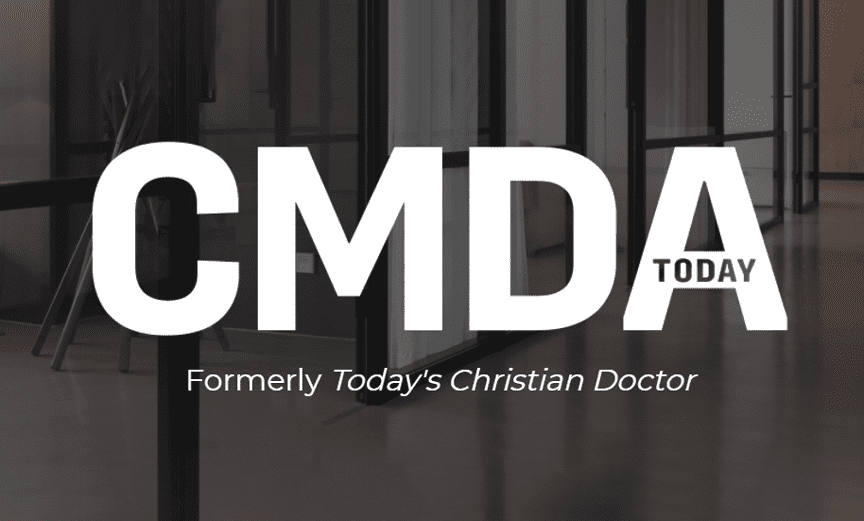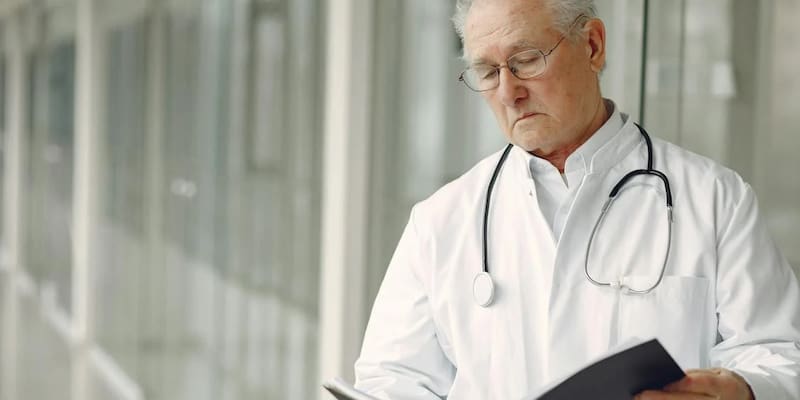
Doctors as gods (and What to Do About It)
A group of colleagues and myself met recently to discuss episode 16 of CMDA’s Faith Prescriptions video series at a Christian clinic in Yorktown, Virginia. Episode leader Dr. Farr Curlin states regarding the practice of medicine, “We should make use of it, it’s a gift of God, but don’t put our hope in it, as if it is the physician who saves.”

Christian Medical & Dental Associations®
A group of colleagues and myself met recently to discuss episode 16 of CMDA’s Faith Prescriptions video series at a Christian clinic in Yorktown, Virginia. Episode leader Dr. Farr Curlin states regarding the practice of medicine, “We should make use of it, it’s a gift of God, but don’t put our hope in it, as if it is the physician who saves.” A physician member of our group, who works at a local military base, mentioned how discouraging it can be when our patients have unreasonable expectations of us. “They expect results from us that only God can provide,” he bemoaned.
When patients give us more credit than we deserve, we tend to take it in stride. However, when we fall short of our patients’ expectations, we recognize the truth of Benjamin Franklin’s words, “God heals, and doctors take the fees.”
Why is it our patients so often expect us to come up with the instant diagnosis and the perfect solution to whatever ails them? Might there even be a way to turn this awkward situation into a gospel opportunity?
The lively discussion that occurred on this topic at our Faith Prescriptions group meeting created a great opportunity to learn from one another’s thoughts. This is your opportunity to eavesdrop on portions of our group’s discussion.
Unrealistic Expectations
Why do so many in our society develop unrealistic expectations of our capacity to heal them? Part of the answer might lie in our tendency to portray ourselves as those who can meet our patients’ every physical need. We stand on the shoulders of all of those in healthcare who came before us, and this platform of empirical knowledge can tend to create a sort of intellectual arrogance that almost encourages worship from our patients.
A second reason for our patients’ exaggerated expectations of us relates to the increased secularization of our society. The more our society rejects the true God, the greater will be the tendency to seek some other entity to take the place where only God rightfully belongs. St. Augustine referred to the “God-shaped hole” (John 4:13-14) which every human will seek to fill. There are no all-knowing healthcare professionals on planet earth, but for the person who has rejected the only omniscient One, they could be tempted to settle for a greatly inferior human who happens to know a lot about the human body.
A third explanation for the deification of healthcare professionals stems from the what the apostle Paul calls the “last enemy” (1 Corinthians 15:26), the inevitability of physical death for all of us mere mortals. All of us hold onto at least a bit of fear regarding death, even those whose eternal future has been secured by Jesus Christ. Those who do not belong to Christ will usually be inclined toward a greater fear of what might come next. Because of this fear, some patients desperately view their healthcare professional as their final hope.
Gospel Opportunities
The most amazing aspect of our meeting that Saturday morning was the realization that, when a patient looks to us as though we are super-human, a beautiful gospel opportunity is staring us in the face. We see a similar situation in Acts 14, in which Paul heals a man crippled from birth. The response of the people is, “The gods have come down to us in the likeness of men” (Acts 14:11, ESV). Paul and Barnabas are quick to refute this notion, responding, “Men, why are you doing these things? We also are men, of like nature with you, and we bring you good news, that you should turn from these vain things to a living God, who made the heaven and the earth and the sea and all that is in them” (Acts 14:15, ESV).
So, how can we in healthcare best minister to those patients who address us, either in praise or with unrealistic expectations, as though we possess herculean healing abilities? Specifically, how might we point them to the only One who can provide ultimate healing?
As our Faith Prescriptions study group pondered this question, it was suggested that we should each take a few moments to come up with possible responses we might share with patients. The following are a few mentioned:
————————-
“I do my best to keep up with all the advances in my field as a dermatologist. This is a commitment I have made to God, my patients and to myself. I want what is best for you and will work to that end with all my strength. But remember that, ultimately, it is God who truly does the healing of the body and, more importantly, the soul. So today let’s work together and determine what the best course of action will be to keep you healthy—physically, mentally and spiritually.”
————————-
“The more I learn about the human body and how it works, the more convinced I become that we were designed by a loving Creator. As David says in Psalm 139, we are fearfully and wonderfully made, and it’s a privilege to learn through healthcare the truth of these words.”
————————
“I want you to know that I am committed to you and to promoting your wellness in every sense of the word. Also, it’s important to know that in order to achieve true wellness, no doctor (myself included) has any ability to heal, left to our own devices. The good news is that God is fully adequate to the task. He provides healing, hope and life-changing encouragement, even in the most trying of circumstances, and moving forward to help you in the best way, I will be drawing on that wisdom.”
————————
“Like you, I am often frustrated at the limitations of our ability to combat disease—in the lives of my patients and in my own life. It helps me to remember that, ultimately, only the Lord can bring about healing, so I look to Him to help me help you. Would it be good for you if I prayed for you now?”
—————————
Regardless of the specific words we might use to redirect our patients’ ultimate dependence from us to their Creator, the most important principle to keep in mind is captured in the words of Father Cavanaugh in the movie Rudy, “There is a God, and I’m not him.”
The mission of Faith Prescriptions is to equip Christian healthcare professionals to communicate the love of Christ, in word and in deed, to our patients, students and colleagues. To learn more about CMDA’s Faith Prescriptions series, visit cmda.org/learning.
About the Author
William T. Griffin, DDS, has been a CMDA member for almost four decades, and he currently serves as CMDA’s Vice President for Dental Ministries. He is a graduate of the University of Notre Dame, and he received his DDS degree at Virginia Commonwealth University School of Dentistry. His career in healthcare has led him to discover the strong ties between physical health and spiritual health, and over the years he has been greatly inspired by CMDA’s medical outreach teaching programs, The Saline Solution and Grace Prescriptions.



